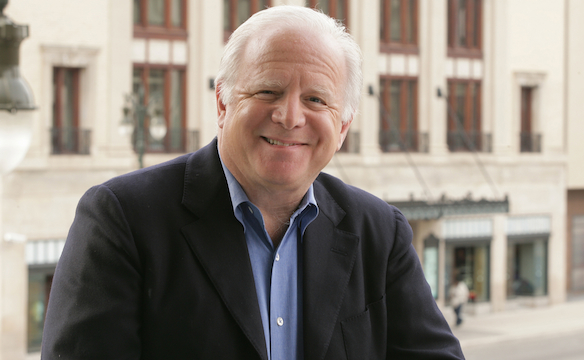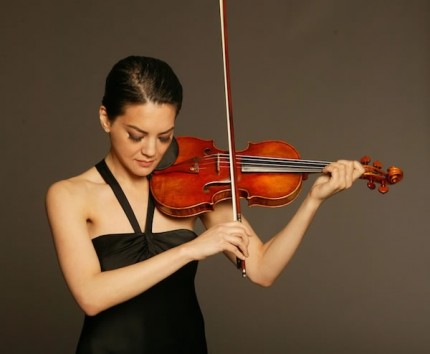Slatkin, Chicago Symphony pack the house for a successful (and rare) American program
If you are an aficionado of American music, you best hightail it to Symphony Center this weekend.
The two hours of American music presented by Leonard Slatkin and the Chicago Symphony Orchestra Thursday night adds up to about twice as much homegrown repertory as is being performed by the CSO in the entire 2014-15 season. That’s right: one hour of American music for an entire season. That’s not only a disappointment—for a leading American orchestra, it’s a disgrace.
Whether the reason is a lack of enthusiasm for American music by Riccardo Muti—co-composer-in-residence Mason Bates apart—or the fear of CSO execs that American music won’t sell tickets the way Tchaikovsky, Rachmaninoff and Beethoven do, Thursday night’s concert should provide a wake-up call at 220 S. Michigan.
The evening was one of the most well-attended non-Muti concerts of the season with a conspicuously younger demographic than usual, swelled no doubt by Mason Bates’ local fans and supporters. Most importantly, the audience responded with great enthusiasm to all four works. So the belief that local concertgoers are only up for the most conservative, Eurocentric programming doesn’t exactly show a finger on the pulse of today’s Chicago audiences.
The Chicago premiere of Mason Bates’ Violin Concerto was the main order of business Thursday yet Slatkin’s well-balanced program offered a neat American sampler of sorts: short populist works by Barber and Gershwin, a rugged symphony by William Schuman, and Bates’ newish concerto.
Samuel Barber wrote his Overture to The School for Scandal at age 21 as his graduation thesis from Curtis, and the composer’s breezy vitality and indelible melodic profile were clearly manifest right from the start of his career.
Amazingly, Barber’s overture hasn’t been played downtown by the CSO since 1987—with Slatkin on the podium. The conductor led a fizzing and exuberant performance that brought out the playful energy and melodic charm with fine solo turns by oboist Eugene Izotov and English hornist Scott Hostetler.
For most of his life William Schuman balanced two careers as composer and academic administrator (president of the Juilliard School and the first president of Lincoln Center). He composed prolifically and Schuman’s music enjoyed a high profile in his lifetime but, like so many of the great American symphonists of the mid-20th century (David Diamond, Walter Piston, Howard Hanson, Paul Creston, Peter Mennin), his music is rarely performed today.
Kudos then to Slatkin for bringing us the belated Chicago premiere of Schuman’s Symphony No. 6. Throughout his career, Slatkin has been a dedicated advocate for American works and his spoken introduction with examples set just the right receptive mood for this tough and uncompromising music.
Though it never achieved the popularity in Schuman’s lifetime of the Third, and, to a lesser extent, Fifth Symphony, the Sixth remained the composer’s favorite of all his essays in the genre. Schuman’s symphony is cast in a single movement of 28 minutes. Written in 1947-48, its hard not to feel the ashes and desolation of World War II in this dark and brooding music, launched with a dirge-like chorale for trumpets and trombones.
Schuman was not a tunesmith and this is not music that is easy to love. Astringent, densely woven and knottily contrapuntal, the music seems to reflect a damaged world haunted by the devastation of the war. Jagged shards of military fanfares and a breakout timpani solo burst out and the agitated fugal writing builds to a frenetic climax. Yet the prevailing mood is one of elegiac bleakness with slow, searching music framing the symphony, which closes with a slow ebbing away in an expression of exhausted despair.
Slatkin led the CSO in a powerful and riveting performance, with the violent passages exploding in unhinged ferocity. As an entity and individually, the CSO members gave this demanding, closely argued music their all, with standout contributions from oboist Izotov, flutist Mathieu Dufour, violinist Stephanie Jeong and, especially, timpanist David Herbert.
Anne Akiko Meyers commissioned Mason Bates’ Violin Concerto and gave the world premiere with Slatkin in Pittsburgh in 2012. Cast in three connected sections running 30 minutes, the concerto has a fantastical inspiration, charting the development and eventual flight of the Achaeopteryx, a dinasour-avian hybrid.
I have had mixed reactions to Bates’ music, and did so again with his Violin Concerto. Even with the Jurassic Park program, most of the music seemed awfully thin in inspiration and execution. After the opening blues slaps from double basses and restless violin figures, the first section meanders aimlessly— syncopated riffing alternating between the soloist and jazz-kit percussion that sounded like vamping for the lack of anything else to say.
Meyers performed with a sweet tone, fitfully overdoing the vibrato, and made much out of the main lyrical theme that later morphs into full silver-screen luxuriance. She also brought daunting fire and intensity to the virtuosic closing section, which provided the requisite fireworks, garnering an instantaneous standing ovation by the audience. Slatkin and the CSO provided tight and attentive support.
While effective enough in tackling the genre demands in offering both lyricism and bravura, too much of the score seemed empty and facile with the musical ideas sounding even less interesting when inflated to orchestral dimensions. Mine was clearly a minority view since the audience gave a vociferous standing ovation for Meyers, the composer, Slatkin and the orchestra.
An American in Paris is usually the provenance of pop programs more than subscription concerts, yet Gershwin’s brand of populist Americana seemed the perfect way to end the evening. Slatkin led a sassy and high-stepping performance with wonderfully antic Paris taxi horns and personality-plus contributions by clarinetist John Bruce Yeh and trumpet Chris Martin. Only Stephanie Jeong’s violin solos sounded uptight, far too tasteful and inhibited, failing to cut loose with Gershwin’s Broadway panache.
The program will be repeated 8 p.m. Saturday, and 7:30 p.m. Tuesday. cso.org; 313-294-3000.

